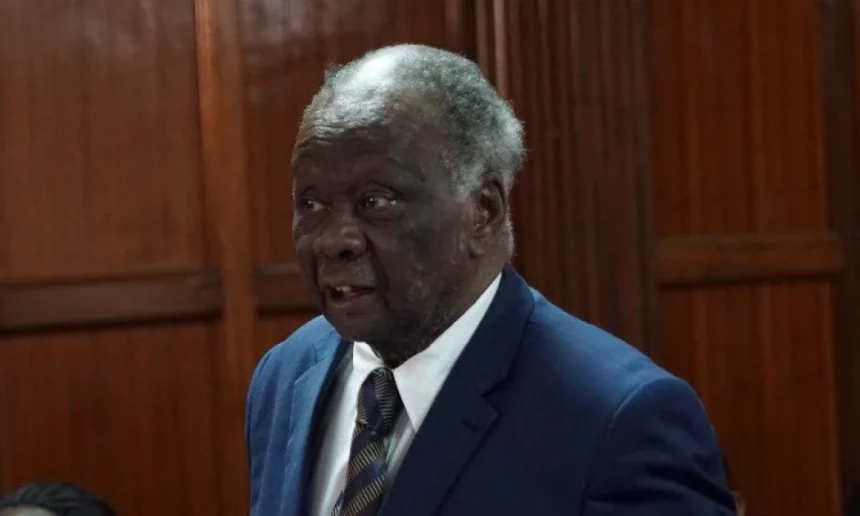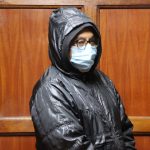In the world of law and human rights advocacy, few names shine as brightly as that of senior counsel Dr John Khaminwa.
At the age of 87, the lawyer has dedicated over five decades to the pursuit of justice, making a lasting impact on countless lives.
Khaminwa embarked on his legal journey more than 49 years ago, co-founding Khaminwa and Khaminwa Advocates in 1974 alongside his wife, Joyce Khaminwa. Their specialization in constitutional matters laid the foundation for a firm with a clear policy: to represent anyone seeking assistance. It was this open-door approach that set the stage for Khaminwa’s career.
In recognition of his selfless dedication, he was honored as the Volunteer Advocate of the Year at the 2021 Kituo Annual Paralegals Awards (KAPA) organized by Kituo cha Sheria.
Over the years, he has taken on over 1,000 pro bono cases, leaving a mark on the quest for justice for Kenyans who cannot afford legal fees.
“I enjoy listening to problems other people are facing, the complaints they have to tell you and then you go to court and try your best to represent them effectively. I have been more or less addicted, the lawyer candidly shared in an interview on NTV.
Law provides with company also. I am in company of people, otherwise life would be lonely and I would also probably begin to think of my own personal problems and that could affect me health wise.
However, Khaminwa’s journey has not been without its challenges, such as his first detention in the 1980s which lasted 17 months. His involvement in cases that challenged the one-party state brought him face to face with Kenyan authorities. Some of his clients, including notable figures like George Museti Anyona and Stephen Mwangi Muriithi, attracted government’s scrutiny.
It is easy these days for a Lawyer to represent anyone. During those days of Moi, you had to think twice whether to present so and so or not. I did not want anyone to have a say in whom I represent in court and who I do not represent at all, and that did not go down very well with those who were in authority, he said.
It was a trying period when you now find that you are sleeping on cement. Its not a good thing, and out of 24 hours, you spend 22 hours alone in a small room and the food is of very poor quality. The only books that I had access to was the Quran and Old Testament in Kiswahili. No wonder that a number of people with whom I was detained, majority of them are now dead.
In 1990, he faced another detention, albeit shorter, in connection with the famous Saba Saba rally. A pivotal event in the fight for multi-party government in Kenya.
Khaminwa and Shamalla would later on go to the police and seek the whereabouts of Matiba and Rubia, who had been arrested shortly before the date of the intended rally.
When I reached the Nairobi Area Police station I met a very pleasant officer. He offered us tea. He then said he wanted to see me without Shamalla. I followed him into another room. He closed the door behind me. I found myself facing two lines of police officers, fully armed. As I walked between them he told me I was detained. I was taken to cell downstairs that had water poured into, and then stripped me naked. It was about 11 pm, Khamiwa told the Nation.
He was headed for Kamiti Prison, but on the way, the vehicle he was in was stopped and he was ordered out. It then dawned on him that they were in the dense of Karura Forest.
I thought they were going to kill me. That was the time when I really prayed to God to spare my life. I was really frightened that these people were going to shoot me dead, he recalled.
When they told me to get back into the car, I was the happiest man on the earth. I was taken home by one of the Deputy Commissioners of Police and he said to me that this was the last time for me to be detained. That meant that the next time I did something they did not like, they would probably shoot me dead.



